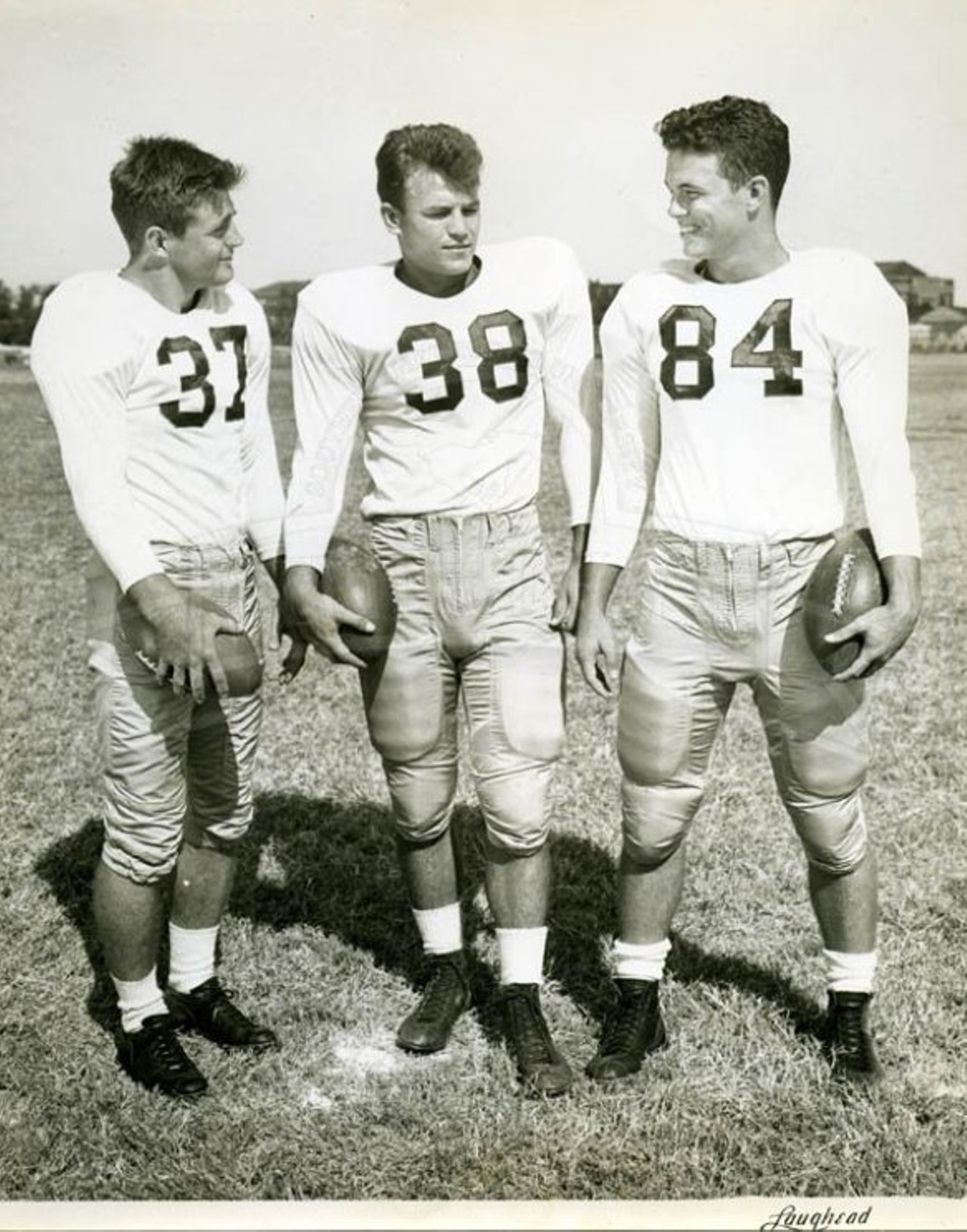Former three-term Dallas Mayor Robert “Bob” Folsom, the man who brought Reunion Arena and the Dallas Chaparrals to the city after serving on the Dallas ISD school board and lettering in four sports at Southern Methodist University, died Tuesday at his Dallas home. He was 89.
Folsom, born on Feb. 15, 1927, grew up in Oak Cliff, attending Greiner Junior High, where he met his future wife Margaret Dalton, and Sunset High School. After both Folsoms graduated from Sunset in 1944, Bob attended the United States Military Academy at West Point, where he played in two national championship football teams now considered among the best of all time in 1945 and 1946. After two years at the service academy, with World War II over, Folsom transferred back to his hometown and SMU. There, he became the first person to letter in four sports — football, basketball, track and baseball. During his time playing college football, Folsom was one of four players in history to play with three Heisman Trophy winners — Glenn Davis and Doc Blanchard at Army and Doak Walker at SMU.
Folsom married Margaret in 1949.
In the years after Folsom left SMU, he slowly built his real estate development firm Folsom Properties, Inc., into a North Dallas empire before getting elected to the school board in 1960. After serving on the school board for six years, Folsom became part of the ownership group of the Dallas Chaparrals, one of the American Basketball Association’s charter franchises in 1967.
Despite initial success — the Chaps made the playoffs in each of their first five season — the team never gained a successful foothold in the Dallas market. With attendance often dipping below 500 fans a game at Moody Coliseum or the Dallas Convention Center Arena, the team was put up for sale after the 1972-1973 season. In 1974, a San Antonio group led by Red McCombs bought the franchise from Folsom and his partners and renamed the team the San Antonio Spurs.
In 1976 Folsom ran for mayor. He defeated Garry Weber in that race before serving three consecutive two-years terms between 1976 and 1981. As mayor, he saw the construction of the Dallas Museum of Art and proposed building a new central library, a project that would be completed in 1982.
During his stint at Dallas Council Horseshoe, however, Folsom became best known for getting Reunion Arena built without a public vote.
Not wanting an up or down vote on the project, Folsom led the city council to approve selling seat option bonds to individuals and business that wanted to reserve choice seats for the new arena’s events in order to finance the arena. For his trouble, the arena was initially tabbed “Folsom’s Folly” in Dallas media.
Folsom got the last laugh when, following groundbreaking on the arena in 1978, the NBA awarded Dallas an expansion team in 1980. Folsom became one of the Mavericks’ six original minority owners and watched as the team outgrew the building he fought so hard for, eventually leaving for the American Airlines Center before the 2001-2002 season.
Margaret Folsom died in 2013. Bob Folsom is survived by two daughters, a son, 10 grandchildren and six great-grandchildren.
[
{
"name": "Air - MediumRectangle - Inline Content - Mobile Display Size",
"component": "18855504",
"insertPoint": "2",
"requiredCountToDisplay": "2"
},{
"name": "Editor Picks",
"component": "17105533",
"insertPoint": "4",
"requiredCountToDisplay": "1"
},{
"name": "Inline Links",
"component": "18349797",
"insertPoint": "8th",
"startingPoint": 8,
"requiredCountToDisplay": "7",
"maxInsertions": 25
},{
"name": "Air - MediumRectangle - Combo - Inline Content",
"component": "17105532",
"insertPoint": "8th",
"startingPoint": 8,
"requiredCountToDisplay": "7",
"maxInsertions": 25
},{
"name": "Inline Links",
"component": "18349797",
"insertPoint": "8th",
"startingPoint": 12,
"requiredCountToDisplay": "11",
"maxInsertions": 25
},{
"name": "Air - Leaderboard Tower - Combo - Inline Content",
"component": "17105535",
"insertPoint": "8th",
"startingPoint": 12,
"requiredCountToDisplay": "11",
"maxInsertions": 25
}
]












